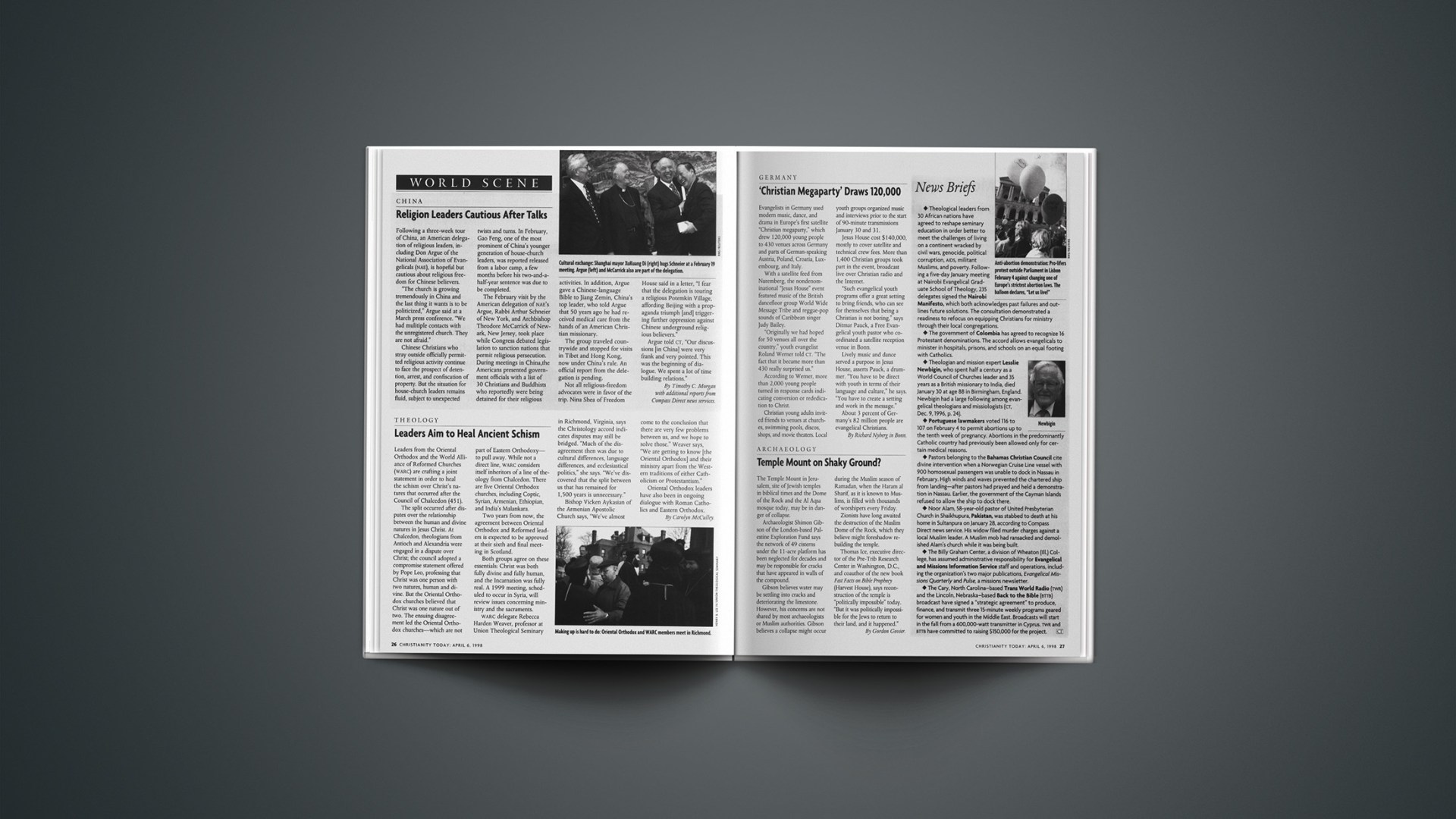Leaders from the Oriental Orthodox and the World Alliance of Reformed Churches (WARC) are crafting a joint statement in order to heal the schism over Christ’s natures that occurred after the Council of Chalcedon (451).
The split occurred after disputes over the relationship between the human and divine natures in Jesus Christ. At Chalcedon, theologians from Antioch and Alexandria were engaged in a dispute over Christ; the council adopted a compromise statement offered by Pope Leo, professing that Christ was one person with two natures, human and divine. But the Oriental Orthodox churches believed that Christ was one nature out of two. The ensuing disagreement led the Oriental Orthodox churches—which are not part of Eastern Orthodoxy—to pull away. While not a direct line, WARC considers itself inheritors of a line of theology from Chalcedon. There are five Oriental Orthodox churches, including Coptic, Syrian, Armenian, Ethiopian, and India’s Malankara.
Two years from now, the agreement between Oriental Orthodox and Reformed leaders is expected to be approved at their sixth and final meeting in Scotland.
Both groups agree on these essentials: Christ was both fully divine and fully human, and the Incarnation was fully real. A 1999 meeting, scheduled to occur in Syria, will review issues concerning ministry and the sacraments.
WARC delegate Rebecca Harden Weaver, professor at Union Theological Seminary in Richmond, Virginia, says the Christology accord indicates disputes may still be bridged. “Much of the disagreement then was due to cultural differences, language differences, and ecclesiastical politics,” she says. “We’ve discovered that the split between us that has remained for 1,500 years is unnecessary.”
Bishop Vicken Aykasian of the Armenian Apostolic Church says, “We’ve almost come to the conclusion that there are very few problems between us, and we hope to solve those.” Weaver says, “We are getting to know [the Oriental Orthodox] and their ministry apart from the Western traditions of either Catholicism or Protestantism.”
Oriental Orthodox leaders have also been in ongoing dialogue with Roman Catholics and Eastern Orthodox.
Copyright © 1998 Christianity Today. Click for reprint information.










